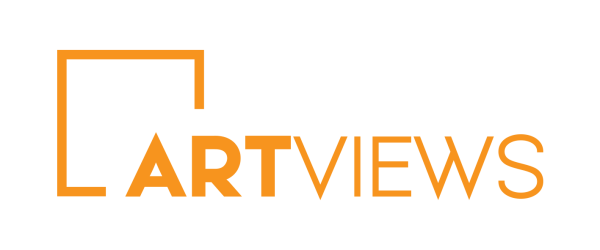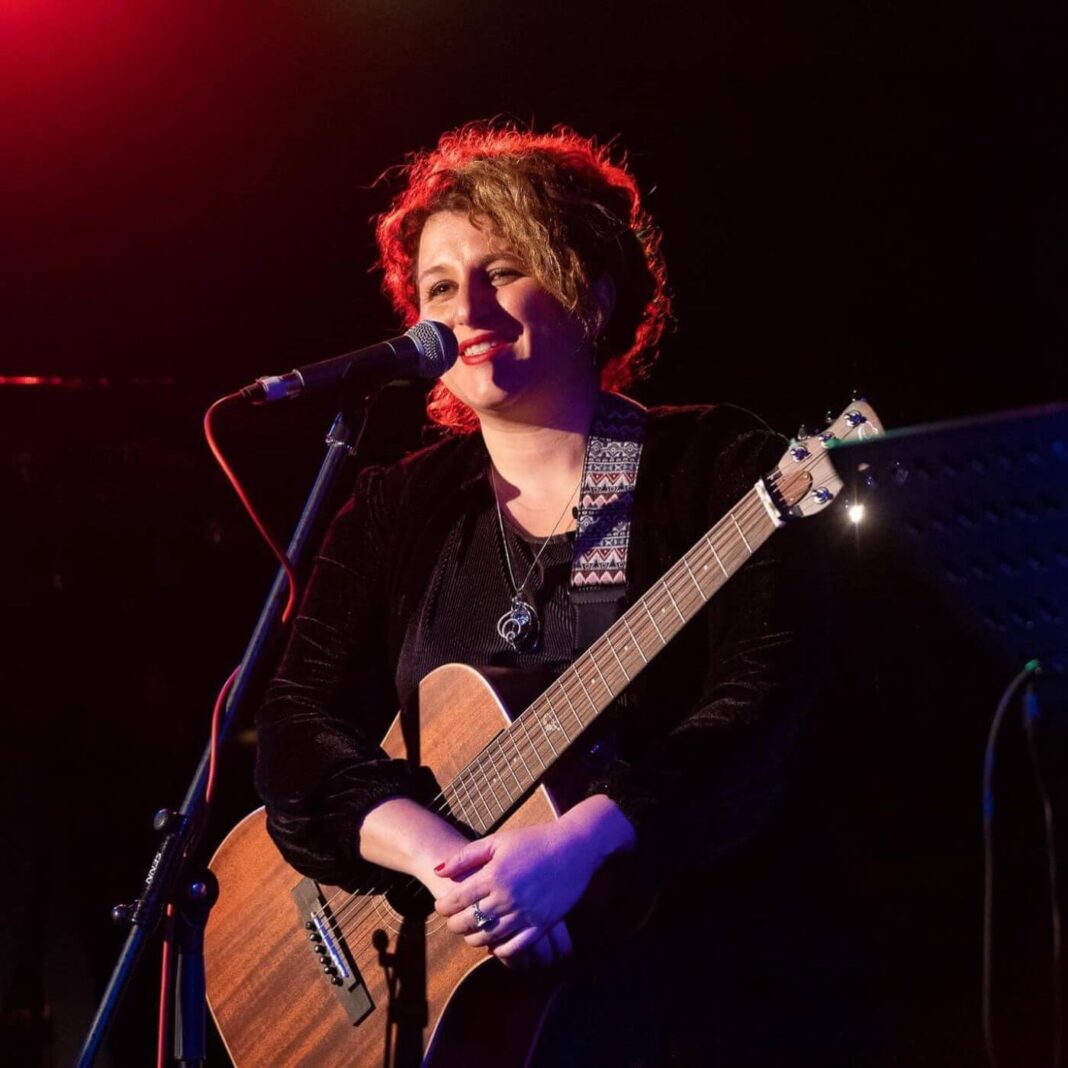Lara Eidi was born in Athens to Lebanese Canadian parents, Lara Eidi is an award-winning artist who thrives on being different. An accomplished and reputable singer-songwriter, pianist, recording artist, and jazz-folk vocalist of her own accord based in London and Athens, she has toured Europe as a solo artist headlining shows in Austria, Finland, Germany, and the Middle East ( Lebanon), to the UK.
Her music has gained her critical acclaim as a genre-bending artist (BBC London, CBC Radio Canada) and has performed at some of the most prestigious venues with celebrated artists in the UK ( Royal Albert Hall, Barbican Centre, Hampstead Jazz Club) , always re-shaping her strengths as a classically trained -jazz turned folkster ( Guildhall School of Music and Drama ), often described as “a singer with true gift of a voice, a kind soul, and a captivating presence.” (Jazz UK).
Her music seeks to elevate and heal, and as a result, she creates genre-defying songs with a great emphasis on storytelling. Her latest album ‘Sun’( nominated for best album of the Year Orpheus Music Awards)is a testament to her gifted musicality as a composer and vocalist, weaving her message of hope, empowerment, and freedom through waves of folk, acoustic rock, jazz and chamber folk. Grammy Academy Member, Multi -Award Winning Jazz Artist Fiona Ross has said of Lara’s latest work and distinct voice: “Music is an omnipotent tool. It has the potential to strengthen and to empower. To bring light where there is dark. But these almost magical moments of connectivity can only be realized if placed in the right hands. Lara Eidi is those hands”
At the heart of her being a multi-disciplinary artist, Lara is sought after as a composer for vocal film scores, writes as a freelance music journalist, and is in demand as a songwriting mentor, voice coach, and producer. After founding Phonica Music Coaching, she takes on artists from all walks of life to enable them to realize their musical visions with her unique mentorship program The Notes Between. She is also the host of an award-winning podcast series with Women in Jazz Media, the songwriting podcast ‘The Notes Between ‘, focusing on unsung voices in the female composer world.
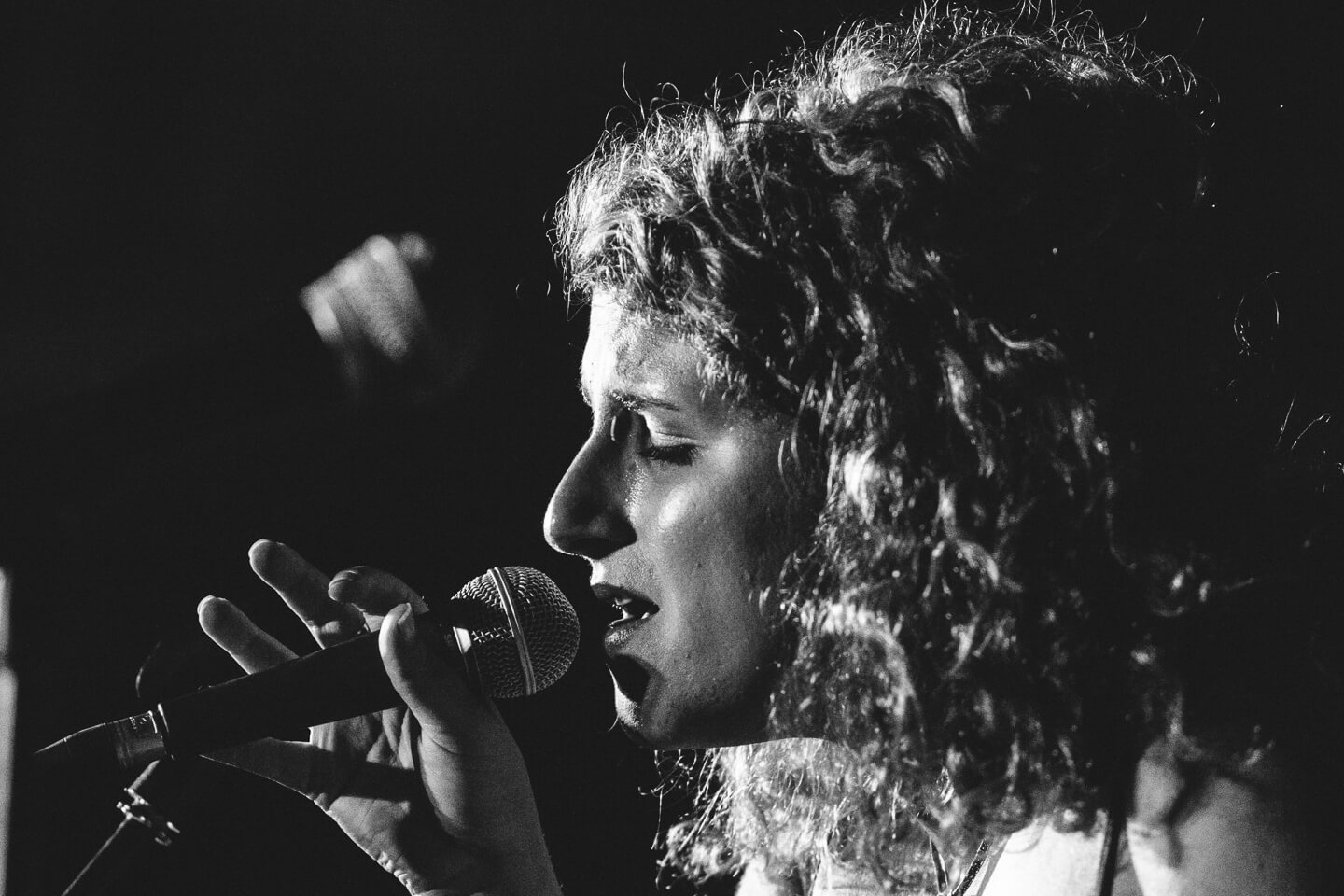
-What is the first creative moment you remember?
-Great Question! It’s hard to pin down some of the first events. Let me start by saying that creativity has always been a part of who I am as a person, in whatever I experienced, long before choosing music as my profession. I was always fascinated by the power of music and the story behind each piece of music, so sound and words were something I naturally experienced with a child-like curiosity, even to this day. If I had to talk about the ‘first ‘ creative moment, it’s a simple story.
I remember as a child riding in the back of our family car, my godfather and father in the front and my mom on my right. My godfather was trying to lull me to sleep so he started to sing “Twinkle Twinkle”( remember that infamous lullaby?). It didn’t work in the way he wanted, because instead of being lulled to sleep I found myself harmonizing with him and then improvising the melody with my own words. It was then I felt something that couldn’t be defined;
I was suddenly drawn into a world where emotions danced around like a burning flame of infinite possibility. Years later as an adult looking back on that seemingly simple experience, I realized I had delved into a world of harmony, sound, emotion, and words all at the same time. I was just so fascinated by how a melody, so distinct and pure would be expanded upon and changed from one form to the other.
I carry this exact approach on stage and in life, truly. The creative process is the simple act of surrendering yourself to how you feel in the music, and in turn, allowing it to influence your own life experiences.
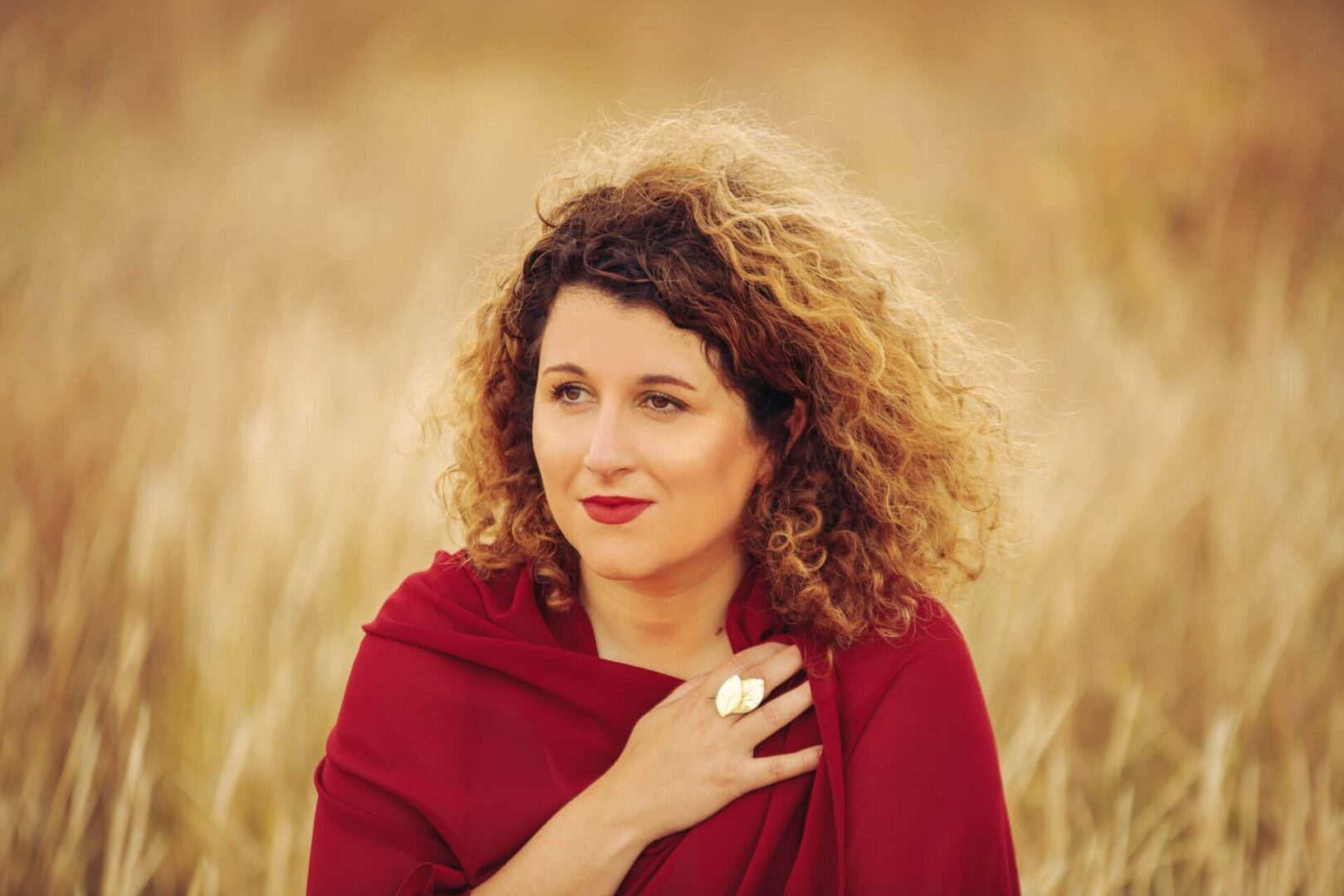
-What does art mean to you?
-Art is a way of being, a way of living, and a way of communicating. It is the extension of the mind, body, and heart, finding spaces in which stories can be shared for the world to hear. In music, the most personal songs I’ve written have had the most impact as a result of being both vulnerable and free at the same time.
For music, for instance, when you perform, there’s no such thing as a perfect performance. That’s what makes music one of the most humane and empowering forms of communication. It can transform someone’s life, or uplift, heal, inspire, the list is endless. I’d like to mention that although music is my profession and I’ve been performing since a young age, it wasn’t until I completed my first Degree in English Literature at Deree College that I decided I wanted to make music my life.
Words for me hold just as much significance and hence writing as an art form is what prompted me to re-define my voice as a singer-songwriter, having already performed as a jazz and pop singer and pianist. The wonderful thing was: that the moment I stopped asking myself “Why music “ or “What does it mean “, is the moment I found myself just engaging in the act itself. That’s what happens in the world of art. Maria Callas said it beautifully so I’ll borrow her infamous words: “The artist is always there “.
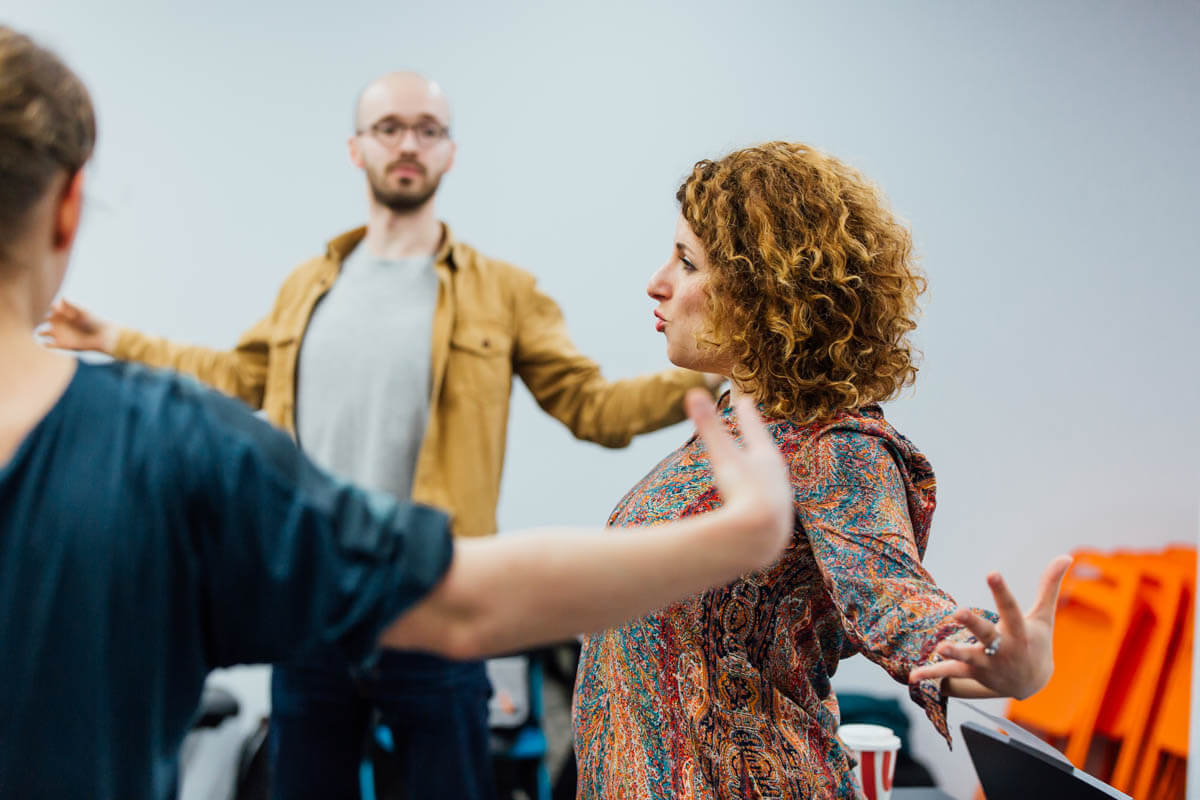
-Where do you draw inspiration from?
-I draw inspiration from experiences, from stories, from nature, from universal stories of the human struggle, from love, always with the notion that moments of sorrow are, to borrow from Khalil Gibran: “When you are joyous, look deep into your heart and you shall find it is only that which has given you sorrow that is giving you joy.” I have written music inspired by the way a river runs through a small village the current heartbreak of Gaza, to the experience of a love that cannot be rekindled, and most of the time, these songs were inspired by someone either saying something that stuck with me or listening to something, a non -lyrical sound that begged to be explored.
For instance, I remember when I moved back to Athens, during COVID from London, I felt incredibly confused just like the entire planet to be tied to the screen and be forced to accept the “ new normal”. I remember staring at my laptop screen for what seemed like an eternity, where I just felt like I had lost all sense of time and purpose. The lyrics “ Time was slipping, I was hoping, To find my place, walking, stalling “. It was the premise for the song “ Breathe Love”. Trust me when I say, inspiration can come from a divine source as much as it can come from staring at a screen. It’s inexplicable. When it happens, you just have to embrace it.
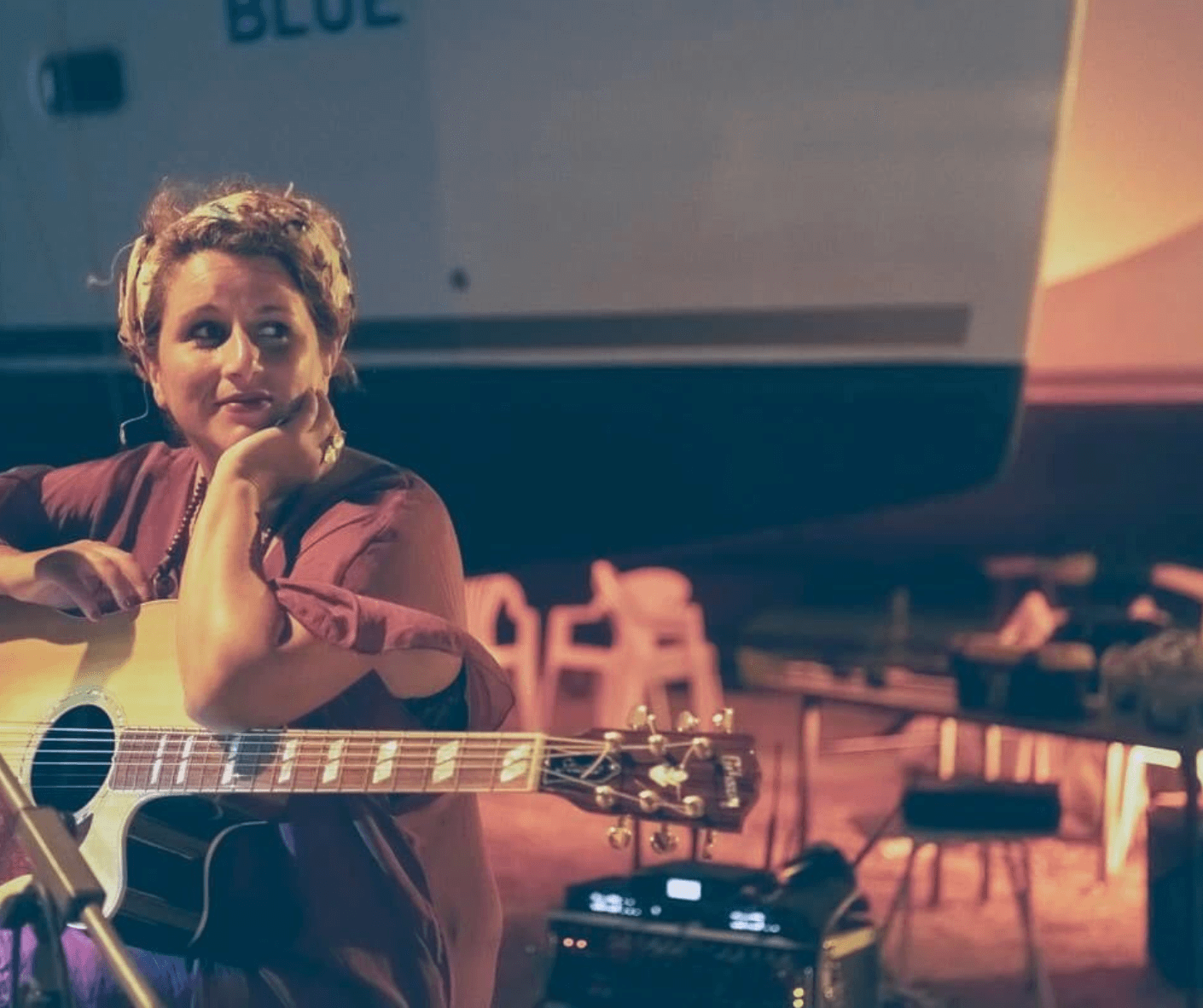
-Growing up in Athens with Lebanese-Canadian heritage, how has your background influenced your approach to music and storytelling?
-This is a question I’ve long been asked, and I always have the same answer: it’s helped me defy the concept of ‘background’. In London, I was ‘congratulated’ for sounding so ‘American’ when I sing, and in Greece, I’m still seen as a foreigner who brings an ‘exotic’ twist to singing. I laughed at both things, and it got to me for a while. I always thought: why does my background have to suit everyone’s viewpoint? Finally realizing that it doesn’t matter, it was only then that I realized how lucky I was to bring layers of depth and originality to what I do .
After all, if we are the sum of all we experience, how can culture be any different? It affected my approach to music in a way that made me constantly aware of the history and socio-political significance of music.
Just like Maqam Music and the Levante having influenced countries like Greece and the Balkans, Black Music which is Jazz, influenced and continues to be hugely influential for a multitude of musical genres. So hugely because I was lucky to be born into a multicultural family,I sought out the story behind songs and pieces of music by understanding its cultural roots. I found myself easily understanding people because I knew that their story came from a multitude of life experiences. When I tell stories, it comes from the perspective of the human first, and always.
Musically, it enabled me to approach different genres with the same determination. When I started as a Jazz Singer, for instance, I researched what the music represented, and realized that Black Music was and is a movement. So in other words, I “ learnt “ the language, imitated it, then made it my own.
The same with classical music: I started as a classical pianist and was involved in children’s choirs, and my uncle Billy Eidi, a celebrated pianist in Paris encouraged me to look at classical music as a myriad of sonic tapestries. I learned the pieces, and then I sat at the piano and tried to figure out what they meant to me, personally. To be a singer-songwriter, which is the path I’m currently on for the last 13 years, is to embrace everything about what songs mean and how they affect you. In my second year of completing a Master’s at The Guildhall School Of Music and Drama, I found myself in a multitude of improvisational groups with musicians from my native Lebanon and Palestine, as well as Greece.
I had a moment where I thought why did it take me this long to sing this music ( which I’ve always loved and grew up listening to Fairuz and Oum Khaltoum) so fast forward to earlier this year in January? I had an incredible opportunity to perform as a soloist with Saudha at The Royal Albert Hall singing the first ever documented song of “ Seikilos- The Epitaph “ and a medieval Arabic Song “ Lama Bada Yatathana”. I was given free rein by the director to ‘improvise’ vocally and musically and as I did, elements of Indian Ragga and Arabic Maqam at times seemed the same.
Fast forward to this year when on tour, I brought along jazz standards and other originals that also were an extension of my influences. If we embrace the story of the music, we are respecting its heritage, and we can in turn collectively highlight our musicality. So, I’m extremely happy to be in a position to do just that.
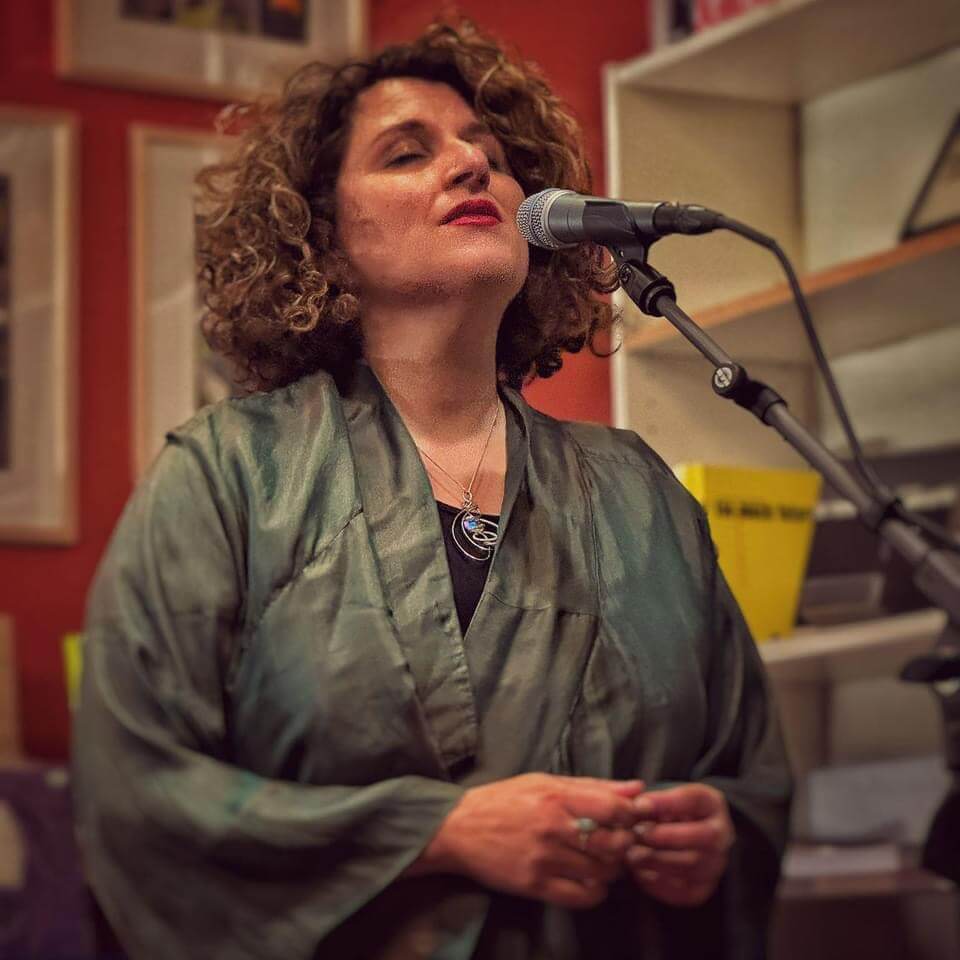
-How do you approach blending jazz, folk, acoustic rock, and classical influences in your music?
I approach it by way of highlighting certain aspects of a song that ultimately can sound “ folky “ jazzy “ or “ classically “ without actually thinking of it much, to be honest. For instance when I finished the demos for my latest album “ Sun”- I aimed to create a much bigger sound than my previous work. I wanted a stellar rhythm section that could groove (so I found a jazz bassist and rock drummer) ), I wanted uplifting and sometimes heavily layered strings ( So I hired a beautiful string trio ), and lastly, as I sat at the piano and guitar and proceeded to sing, I knew I wanted textured and layered harmony.
I dug up records of Becca Stevens work with Jacob Collier, and also listened to one of my favorite classical chamber quartets, The Kronos Quartet, and the Danish String Quartet. The thing is: when you listen to music it’s like anything else in life: repetition brings about muscle memory, so in my case because I ‘ve been in the lucky position to have started classically, venturing to Jazz, culminating in folk and world music, my mind and voice is a result of all of those hours spent listening and performing elements of the music I like. I like to think that when it comes to my original music, it’s not something you can pin down. I try to fulfill a space of authenticity and openness.
The result of this particular album was just that: music that wove itself between the predictability of pop-infused form to blues too, you get the picture…Music is music, and that’s always been my personal belief. Ultimately, if you’re adventurous, your music will sound like the sum of all parts.
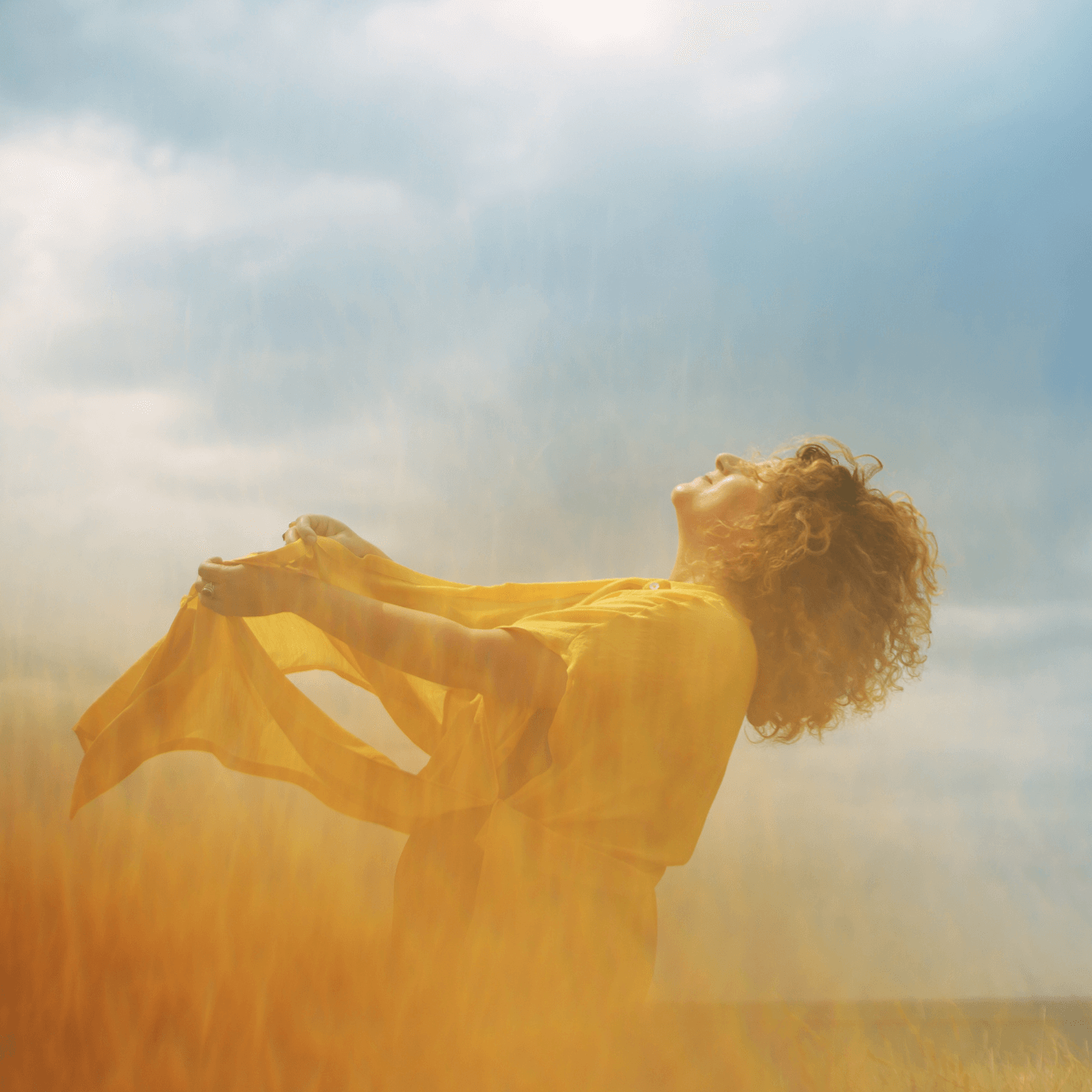
-In addition to being a singer-songwriter, you’re also an educator and a creative workshop leader. How do these roles complement your identity as a performer?
-I’ve often thought about this myself. It’s really interesting to address how teaching can be viewed not just as a side hustle but in truth, the extension of what we do as performers. The term ‘Artist- Teacher’ has been coined recently and I truly love what it stands for. When I was a student ( and by the way you never stop being a student, music is ever-evolving) , I admired teachers who showed passion for their craft.
Whether it was eagerly showcasing a nifty chord progression and breaking down the harmony, to demonstrating how we must first trust our musical ears before delving into the Conservatoire and Academic approach, I felt like the knowledge they shared was so personal and my job was to filter through it and use what I could, at any given time. Truthfully, all that is put to the test if you are on stage, and in a similar way, a classroom, a workshop space, and nowadays a Zoom studio session is a stage for both teacher and student to begin this nuanced collaboration.
I ended up teaching the subjects I had dedicated years of training on and off stage to do, my subjects became: Voice, Piano, Songwriting, Choir Ensemble to name a few. It’s what led me to develop my teaching platform “ Phonica Music Coaching”. One of the programs I created which was directly influenced by my songwriting career is an online and in-person mentorship program for emerging artists: The Note Between was inspired by a podcast I host focusing on female songwriters with Women in Jazz Media .
In my teaching practice, I happened to have students from all walks of life and different dynamics in music. Whilst that may sound challenging it was a challenge that felt natural to me, because I always felt that music is and should be accessible to everyone. Once again, that’s the power of creativity. So my approach, although coming from a highly trained and extensive background, embraces this idea that people who may not have had access to music education for instance can compose music.
The same thing applies to classical musicians ( of which I currently have two enrolled in my course) who may have thought that songwriting belonged solely to folk /pop musicians; it’s just not true. So I help with arrangement, harmony, and vocal storytelling resulting in professionally recorded EP’s, and a collaboration here and there.
I have to say this as well: if it hadn’t been for my musical teachers, and there are too many to name, I wouldn’t have developed a love for teaching like I do.
-Sun is described as pulling from your diverse musical upbringing with themes of hope and empowerment. Can you share the inspiration behind the album?
The best way to describe the inspiration behind ‘Sun’ is twofold. First, I had a collection of unreleased songs, and I had spent 8 years releasing singles and live recordings from my last album ( Tell it Like It Is). I wanted to record a full-length album, to which, being an independent artist, I was able to crowdfund completely. This album had to represent the past and present.
So I wrote 4 new songs, and when I looked at the whole track list, I realized that the reason I had to release this album was because it was a kind of chapter of my own life for the last 9 years. Then, below are my album cliff notes, which I wrote when listening to the album after I recorded it. It’s what this album is about, dedicated to those who wander and need to be found.
“I like to believe that on the hardest of days, I can breathe love into the world. I can feel the sun, touch down and converse with gravity. I can choose to let go and forgive, and I can choose to ride the tide as it comes and get ready for the unexpected wave. After all, all we can do is hang on, forgetting the Damien’s of this world. Maybe then when I’ve embraced it all, maybe everything will turn out fine. Maybe then, we’ll find the Sun, within.”
-What’s next after the Sun tour? Are there new projects or collaborations on the horizon?
-This year was extremely fruitful and busy for me during the first 7 months. I went on 4 solo European tours, and I’m so glad I got to play acoustic versions of my album to new audiences. Lately, I’ve been setting aside time for my teaching, and reflecting on the next steps. I can’t predict the future as they say, but if all goes according to life’s plan, I’m going to dedicate the next few months to preparing for a project that was inspired by my earlier collaboration with SAUDHA, exploring ancient and sacred music, with collaborations in Greece, Lebanon, and the UK. Other than that, I’m hoping to finally perform once more in my city of Athens!
Social Media
Instagram : @laraeidimusic // @phonicamusiccoaching
Bandcamp : https://laraeidimusic.bandcamp.com/album/sun
Youtube : https://www.youtube.com/@LaraEidi

